
Be Kind To Your Teeth And The Planet
It’s Friday and that means weekly tip time.
Every weekly tip delves into something we do all the time that we may not have realised has an environmental impact and increases our personal footprint.
This week we are looking at something that around 53% of the 7.98 billion people on the planet does every day – clean their teeth.
When 4 billion people do something, it will most certainly have repercussions across the globe, and toothpaste is just the same.
Today we look at the history, the impact and suggest some solutions so that you can lower your footprint when it comes to dental care.

The History of Toothpaste
The Egyptians were producing a tooth powder consisting of pumice, myrrh, powdered and burned eggshells, and ox hoof ashes from around 5000BC.
Crushed bones and oyster shells were added to the recipes by the Greeks and later the Romans to improve them.
Ziryab, an Iraqi musician and fashion designer, created a sort of toothpaste in the 9th century and spread its use throughout Islamic Spain.
Advertisements were seen in the 1790s for Sosekiko, a “toothpaste in a box,” which was made by inventor Hiraga Gennai’s Hika rakuyo (1769) in Japan and by 1824, the first person to include soap in dental paste was a dentist by the name of Peabody.
John Harris added chalk to dental paste in the 1850s and Colgate began mass-producing the first tube of toothpaste some 20 years later.
Toothpaste hasn’t changed much since then apart from tubes being made out of plastic instead of metal and as the population grows and tubes are single use a problem starts to arise.
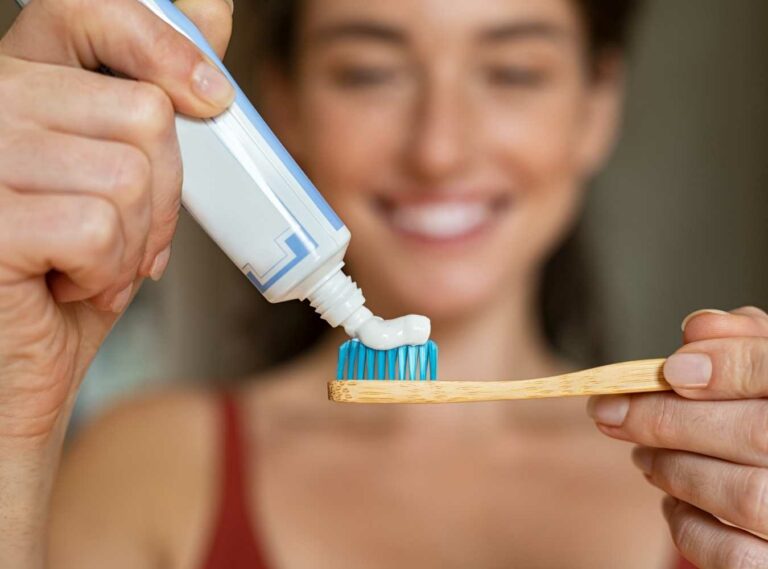
The Environmental Impact of Toothpaste
Toothpaste unfortunately has a number of environmental impacts that you may never have thought about!
When the toothpaste runs out, many of us, with the best of intentions, wash out the tube and put it in the recycling.
The fact is that generic toothpaste tubes are not recyclable since they are produced from a combination of components, including crude oil and aluminium.
This means that over 1.5 billion toothpaste tubes are discarded worldwide each year, and those tubes end up in landfills or worse, in our precious oceans.
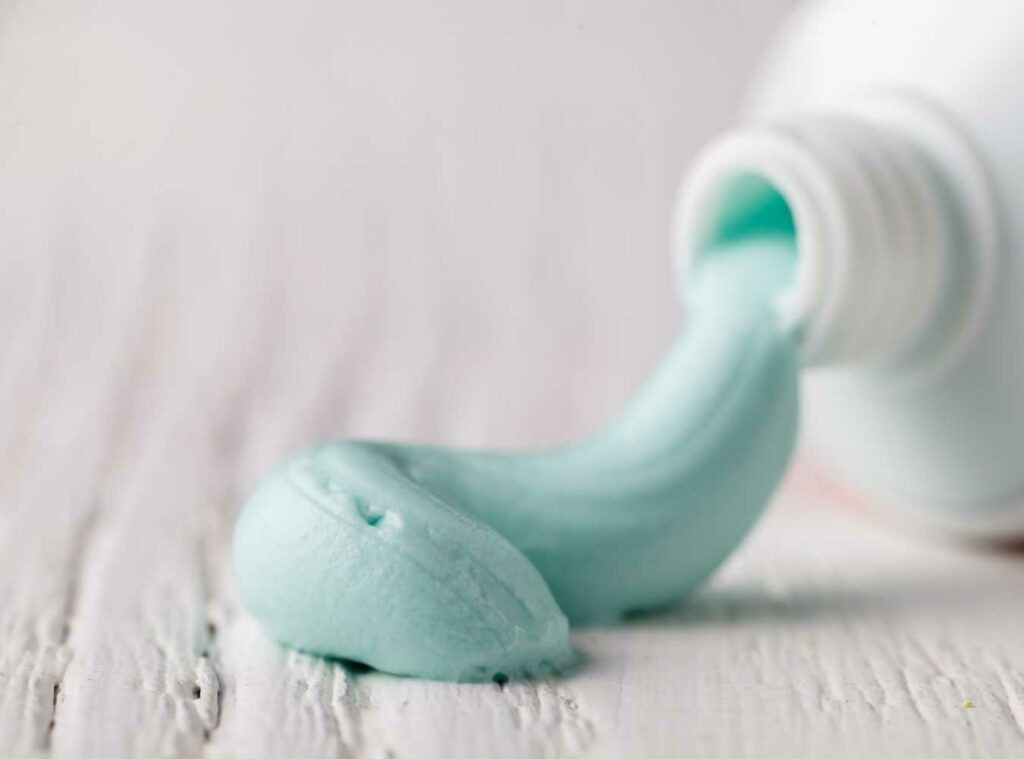
It’s not just the packaging, the very make-up of the toothpaste you clean your teeth with can be harmful to the environment!
For example, Brilliant Blue FCF is a colourant, which is used to make your toothpaste blue.
The problem is that this substance is harmful to marine life and remains in water even after passing through sewage systems.
This substance is found in major brands!
Another substance that is found in major brands is Helidone Pink which is very toxic to marine life and remains in the soil for over a year before it degrades.
But one of the worst chemicals in toothpaste is sodium pyrophosphate.
This substance promotes algae growth both in the sewage systems and surrounding waterways.
The algae cause a build-up of CO2 in the water creating dead spots where fish and plant life slowly suffocates.
How to Make Your Dental Care Planet Friendly
Your entire dental routine will be filled with plastics – your toothbrush, toothpaste tube, dental floss and mouthwash and most of it won’t be recyclable!
Today we are focusing on toothpaste, but you can think about things like bamboo toothbrushes, natural fibre dental floss, and replacing liquid products with solid.
Toothpaste contains a lot of liquid which is not necessary and increases transportation impact as well as packaging and water use.
You can also think about using refillable as you will be reducing packaging and transportation impacts, there will be less waste and a much lower overall impact.
There are a number of brands that have removed plastic from their packaging altogether which helps to lower your impact good examples being Goodwell Co.’s toothpaste which comes in a sugarcane-based tube.
There is also toothpaste by Davids which is packaged in a recyclable aluminium tube.
Another choice is to create your own zero-waste toothpaste from a few basic ingredients that are already found in most eco-friendly toothpaste.
You can even make your own toothpaste at home with baking soda, xylitol, bentonite clay, coconut oil, and peppermint oil without using unnecessary packaging or harmful ingredients
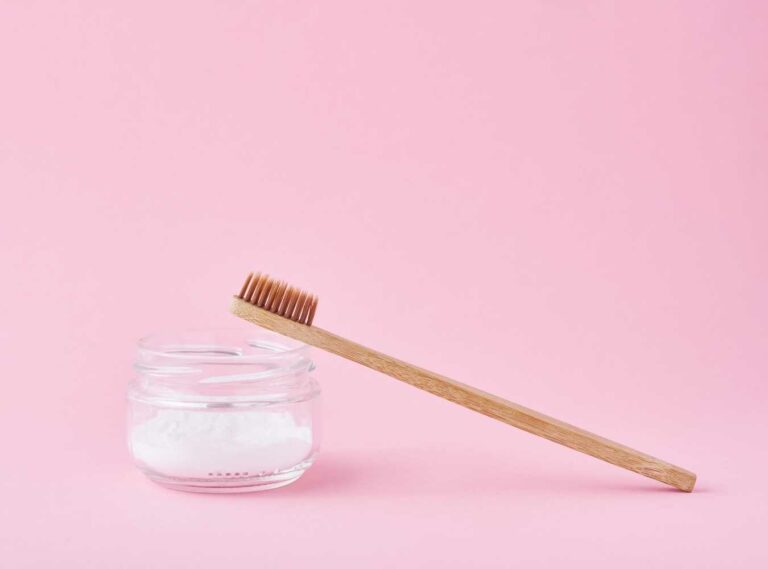
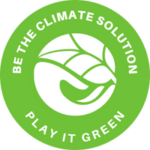
Some of Our Favourite Sustainable Options
The first brand we like is Georganics which makes a toothpaste powder that turns into a paste when you add water.
The toothpaste powder comes in a glass jar and is formulated with natural and/or organic ingredients like Diatomaceous Earth, sodium bicarbonate, herb oils, and more.
They also have a wide range of sustainable dental products all aimed at minimising their environmental impact.
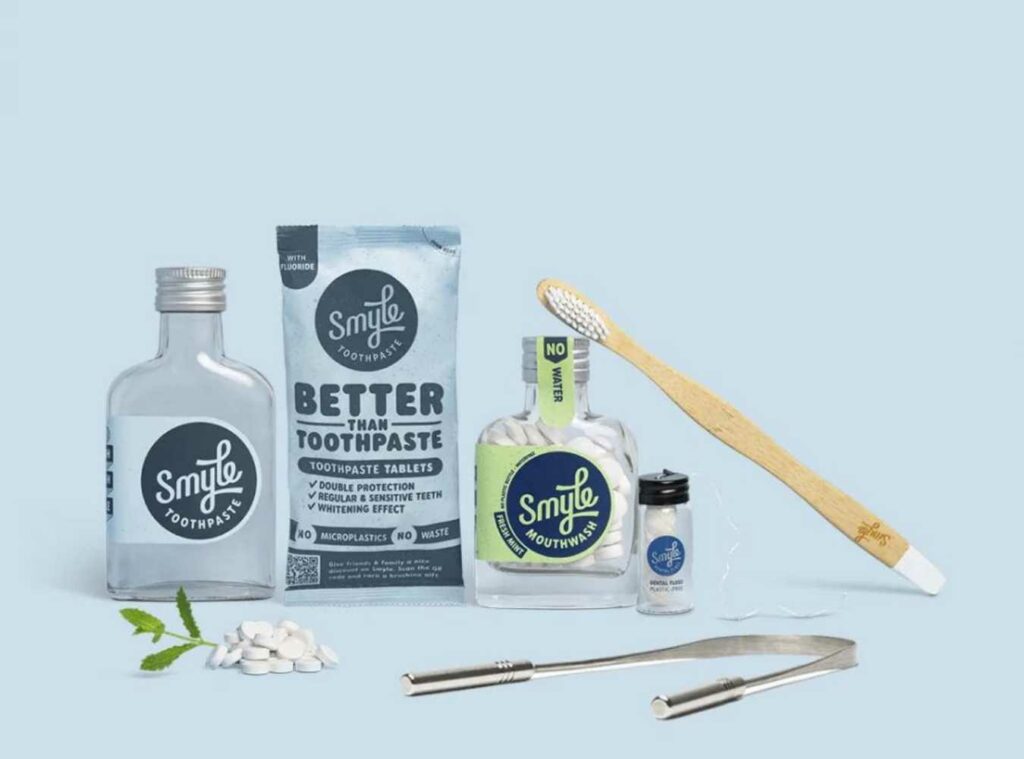
Another brand worth looking at is Huppy Tooth Tabs which are an all-natural, plastic-free alternative to toothpaste that comes in home compostable packaging – even the shipping label and cardboard mailer box can break down in an at-home compost.
Our final brand is Smyle toothpaste mints.
Smyle toothpaste mints come in a refillable glass bottle, are completely plastic free and the refills come in a home compstable paper packet.
We love the fact that they contain only natural ingredients and have been formulated and independently tested by dentists.
The company is completely transparent with its ingredients and an unbelievable 95% of their reviews are 5 star!
To help you take another step to a more sustainable future, you can try Smyle toothpaste mints and save 15% by heading over to their shop and using the code PLAY15 at checkout.
That’s a wrap for this week!
We hope you enjoyed the article, learned something new and are empowered to try something that will help you to reduce you and your family’s footprint.
If you haven’t already, you can receive our weekly tip and other news right into your inbox, plant enough trees to rebalance your personal footprint and give to charity, but singing up to Play It Green using the button below.





